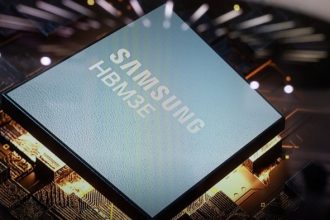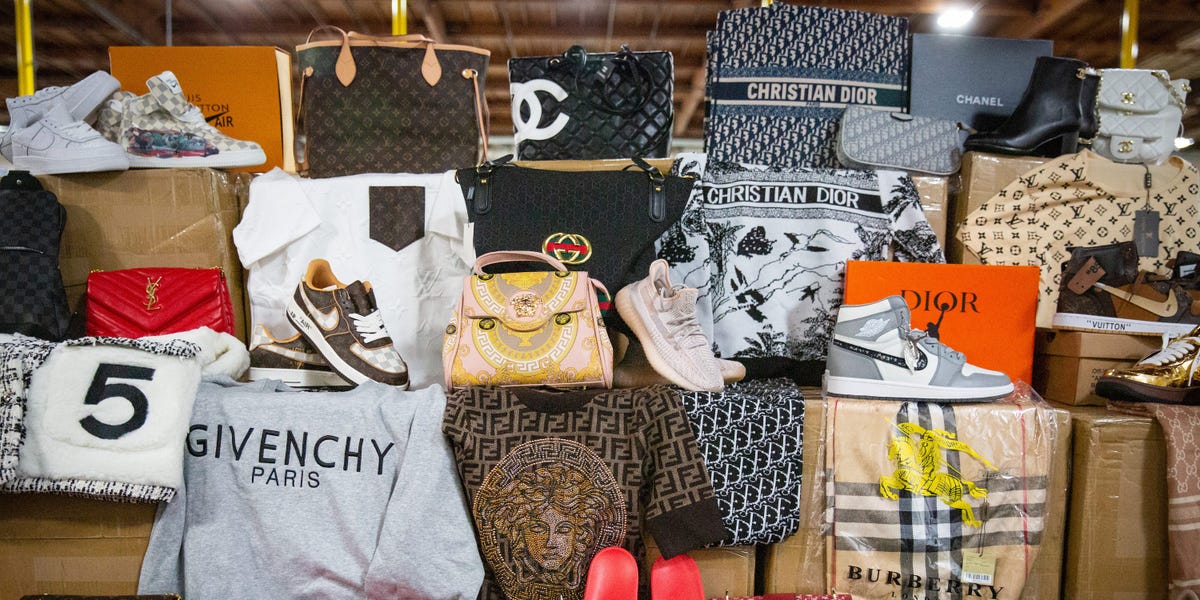Happy Friday! Sen. Mitt Romney smothering salmon in ketchup is bad, but I’d argue you shouldn’t cover anything in ketchup. Grow up and use a real condiment like mustard or barbecue sauce.
In today’s big story, we’re looking at the booming counterfeit market and the risks from knockoff products flooding the market.
What’s on deck:
But first, you can’t tell the difference.
If this was forwarded to you, sign up here.
The big story
Fake it till you make it
Picture this: You want a new designer handbag or a nice pair of sneakers but don’t want to pay full price.
So, instead of visiting the company’s website, you head to one of the many e-commerce sites offering knockoffs. After all, it looks nearly identical and is a fraction of the price! How could you not?
Congratulations, you just helped fuel an epidemic costing businesses $200 billion annually and contributing to 750,000 jobs lost.
Insider’s Jennifer Ortakales Dawkins has a fascinating look inside America’s booming counterfeit market and the industry’s financial and societal impacts.
The knockoff market has exploded in recent years thanks to e-commerce, expanding beyond traditional hotspots like New York City’s Canal Street.
Sellers can quickly spin up a store on one of the many e-commerce sites that exploded during the pandemic. Multiple marketplaces also mean plenty of options if a website bans them.
Counterfeits come with severe consequences beyond simply cutting into corporations’ bottom lines.
The production and distribution of knockoffs has been linked to organized-crime rings that deal in drugs and human trafficking.
Counterfeits also pose a personal risk. Fake Jordans may not lead to physical harm, but knockoff electrics can start fires (or zap your phone), and counterfeit cosmetics have previously been found to have contained cyanide and rat droppings.
Of course, sometimes the worst thing about a counterfeit is getting caught with one.
Just ask the rich New Yorkers who got conned by the Birkin bandit.
3 things in markets
Before the opening bell: US stock futures are trading mixed early Friday, after the Dow Jones closed Thursday with its largest gain in a month.
-
Arm is feeling the pump on its big day. The chip designer’s shares climbed as high as 21% during its much-anticipated trading debut, the biggest US IPO since 2021. But the jury is out on whether it’s a good bet for investors trying to join the AI boom.
-
A key recession indicator has been flashing red for months. The 10-year and 3-month yield curve has been inverted for 212 straight trading days, which may suggest an economic recession is imminent.
-
Mistakes and sought-after traits from billionaire investor Ray Dalio. The Bridgewater Associates founder spoke about the biggest mistake investors make and the qualities he looks for in a new hire.
3 things in tech
-
Leaked email: The fate of VMware employees as Broadcom acquisition closes. They’ll have one of three options: receive a Broadcom offer, a transitional role offer, or severance. But employees — including managers — likely won’t have a choice in which option they get.
-
Apple fans are disappointed with the new iPhone 15. “I’ll never leave Apple but the iPhone 11-15 are all the same exact phones,” one fan wrote. Another complained about the “disappointing” lack of innovation and progress.
-
Americans are bored with ChatGPT, but their employers are just getting started. Although traffic to OpenAI’s chatbot has decreased, companies are ramping up experiments with the technology. It has the potential to replace jobs and monitor employees.
3 things in business
-
Inside Vivek Ramaswamy’s intense, high-maintenance, and highly air-conditioned empire. Former employees said the biotech executive-turned-presidential candidate could be finicky and paranoid. Some said he would treat staff more like servants than workers and needed rooms to be set to 64 degrees or below.
-
How real-estate crowdfunding failed. The model PeerStreet presented was supposed to democratize investing. But hundreds of court filings, input from experts, interviews with investors, and more highlighted the empty promise of this model.
-
Gen Z is making work language less formal. Phrases like “yours truly” and “yours sincerely” are now considered pretty old-fashioned. Words like “naur” and “slay” are creeping into the workplace instead.
In other news
What’s happening today
-
London Fashion Week kicks off today. Designers will debut their Spring/Summer collections. Highlights include Burberry, JW Anderson, and Molly Goddard.
-
Punk and rock music festival Riot Fest Chicago starts. Foo Fighters, Turnstile, The Postal Service, Death Cab for Cutie, Queens of the Stone Age, The Cure, and The Mars Volta are headlining the three-day event.
-
Happy National Hispanic Heritage Month! The month’s first day coincides with the independence anniversary for Costa Rica, El Salvador, Guatemala, Honduras, and Nicaragua from Spain.
For your bookmarks
Longevity diet
“I tried the Nicoya, Costa Rica Blue Zone diet for a week. I felt fuller and more energetic.” Nicoyans live longer than average, don’t eat much meat, and consume more whole foods.
The Insider Today team: Dan DeFrancesco, senior editor and anchor, in New York City. Diamond Naga Siu, senior reporter, in San Diego. Hallam Bullock, editor, in London. Lisa Ryan, executive editor, in New York.
Read the full article here





